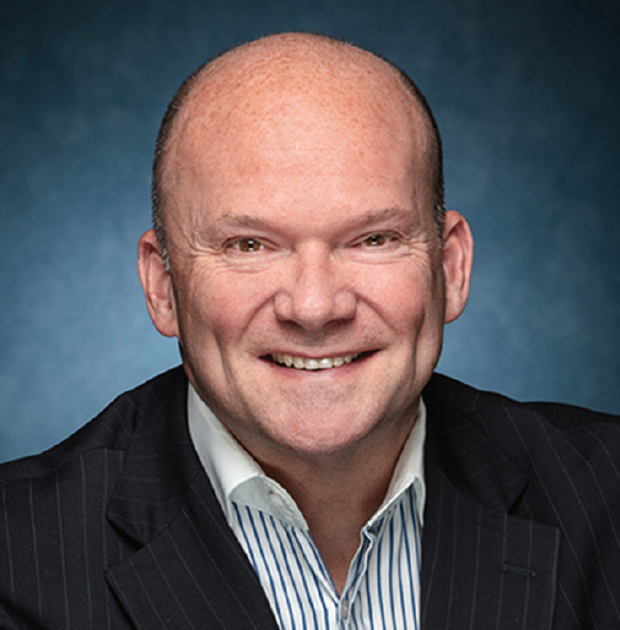PBMs Need to Evolve as Specialty Pharmacy Grows
 An interview with Albert Thigpen, president and chief operating officer of CastiaRx.
An interview with Albert Thigpen, president and chief operating officer of CastiaRx.
Albert Thigpen is president and chief operating officer of CastiaRx, a new pharmacy benefit management (PBM) launched by Diplomat, the nation’s largest independent provider of specialty pharmacy services.
In 2017, Diplomat Pharmacy acquired LDI Integrated Pharmacy Services and brought Mr Thigpen on to run the company’s PBM division. In this position, Mr Thigpen worked with health care payers to develop and service specialty benefit management solutions.
What led you and Diplomat to create CastiaRx? What makes now a good time to launch a brand new PBM?
CastiaRx was launched specifically to address an underserved segment of the health care payer market, which faces growing challenges in specialty benefits. The largest payers have multiple options for PBM and specialty services, but fewer companies provide a comprehensive offering to smaller payers. We also expect specialty pharmacy costs to account for 50% of pharmacy spend over the next 2 years. So, now is a great time for Diplomat to take the lead in specialty benefit management through CastiaRx.
Are you concerned about the challenges presented by high drug prices, and the recent public scrutiny being applied to PBMs?
The challenges of rising drug costs are real. Part of our mission is to help health care payers understand, anticipate, and manage specialty drugs—including those available today and those coming to market. Although only 1% to 2% of pharmacy claims are for specialty, they comprise 40% of pharmacy spending. Specialty patients face clinically complex conditions, as well as two or more comorbidities (or other medical conditions) on average. These patients greatly value the resources and clinical expertise of a specialty pharmacy helping them access and succeed on therapy.
What will set CastiaRx apart from other PBMs?
Most PBMs started decades ago, offering mail-order service and retail pharmacy networks. Back then, more than 80% of drug spend was on traditional drugs—brand and generics. Now, more than 40% of drug spend is on specialty. Our clients need a PBM that brings a laser focus and real solutions to help them manage specialty—the fastest-growing cost area in health care. CastiaRx, powered by Diplomat, is founded in specialty, combining 40-plus years of specialty experience with deep PBM expertise.
Most middle-market PBMs don’t offer the resources and services of a specialty pharmacy. They simply can’t offer what CastiaRx can—including access to more than 100 limited-distribution drugs and a national infusion network. About half of pharmacy costs are covered under the medical benefit, driven by infusion. Our infusion network enables us to offer a comprehensive solution. The breadth and depth of specialty services we have as part of the Diplomat family exceeds other middle-market PBMs.
Shifting gears slightly, during your presentation at the 2018 Asembia Summit you highlighted how the industry is doing a disservice to the consumer by failing to keep up with their rapidly evolving needs—How will CastiaRx pivot PBM services more in the direction of consumers?
We believe health care is highly personal. Technology-enabled services are key to tailoring our approach to patients based on their stage of illness, clinical status, and communication preferences. We’re committed to offering a range of service-level options. These would include high-touch service via a video-chat or phone; less intrusive options such as text messages and live chat; and even self-service options for patients who are clinically stable and well educated on their disease and treatment.
We believe consumers value self-service options with their pharmacy benefits—like they enjoy with banking, travel, and other consumer-focused industries. We are investing in technology platforms that will put even more information in the hands of consumers, while making it intuitive for patients to make smart health care choices and get maximum value from their benefits.
Your presentation highlighted the potential that streamlining services more toward the needs of the consumer—similar to how the banking industry recently evolved—could have on the health care industry. What do you think are the first steps that could/should be taken to move toward a more consumer-focused health care experience?
It starts with giving consumers access to tools and resources that enable them to make smart decisions with ease. An example is one-click ordering for routine medications based on patient ordering history. Another is the ability to track prescriptions through each stage of the fulfillment process—including prescription receipt, prior authorization approval, shipment, and more. These are just two of many ways PBMs can innovate to improve self-service and information access and move health care closer to consumer expectations commonly met in other industries.













